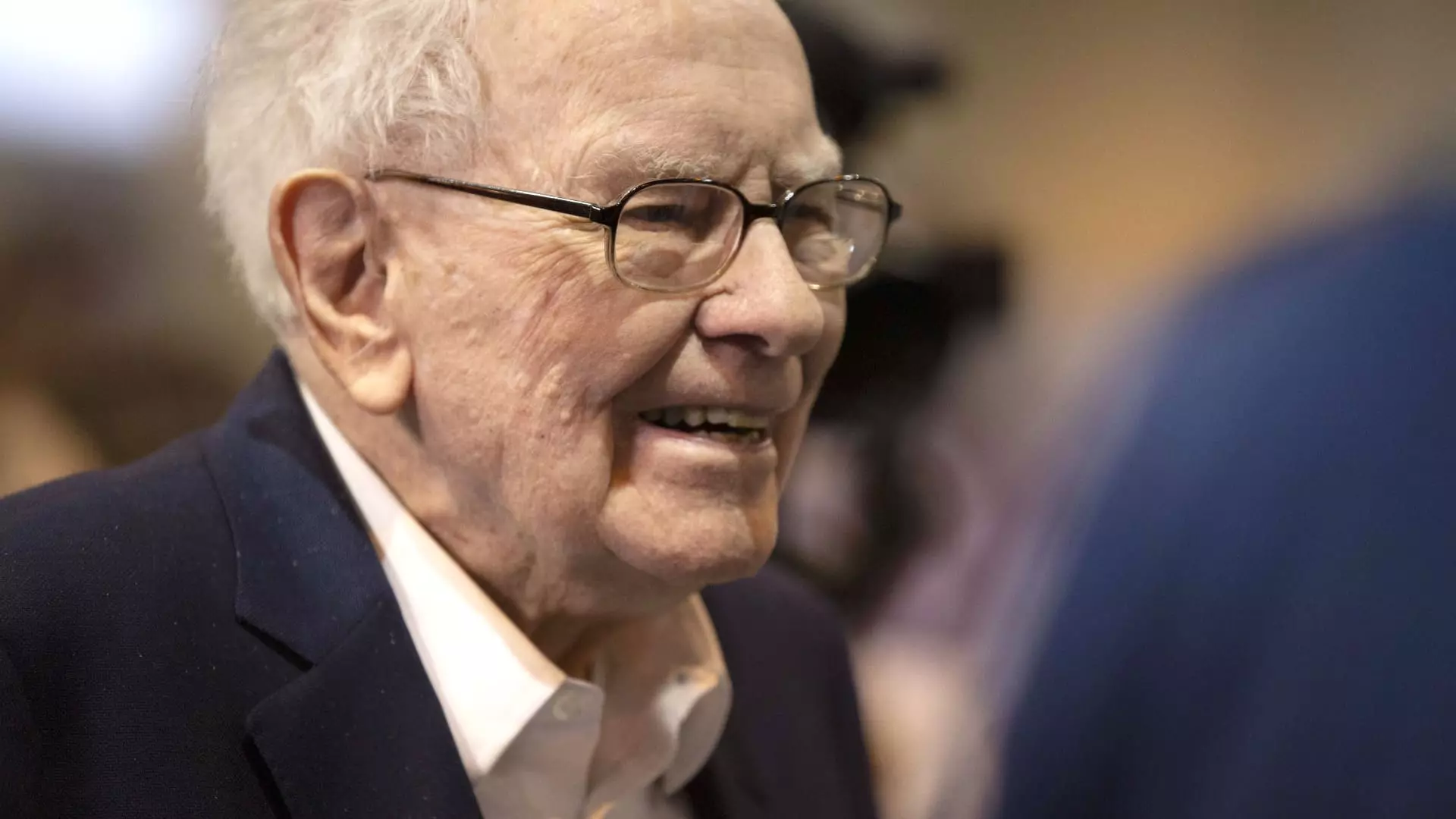Warren Buffett, the legendary investor and CEO of Berkshire Hathaway, has always been a beacon of wisdom in the investment world. His strategies, rooted in a long-term vision and deep market understanding, typically favor equity acquisitions. However, recent actions and commentary from Buffett have left analysts and investors scratching their heads. The expansive cash reserve that has burgeoned to $334 billion, coupled with a net sale of equities over multiple quarters, has raised questions about the company’s future direction under its seasoned leader.
The most striking aspect of Berkshire Hathaway’s recent annual report is the substantial cash position that Buffett proudly mentions. Accumulating cash reserves in today’s economic climate, where interest rates are projected to decline, appears counterintuitive. Buffet’s cryptic reassurance claimed that this sizeable cash position does not signal a departure from his love for equities. Yet, the conspicuous lack of equity purchases paints a different picture.
In Buffett’s own words, “the great majority of your money remains in equities,” yet the decision to sell over $134 billion in stocks over the past year raises eyebrows. Such actions leave a growing sense of apprehension. If the market genuinely offers favorable opportunities, why is Buffett not capitalizing on them? This introspection forces investors to confront a crucial question—are we witnessing a strategic maneuver to weather potential downturns, or is it merely a miscalculation in assessing market conditions?
Buffett’s cautious approach in a thriving bull market has not gone unnoticed. While the S&P 500 enjoyed substantial gains, Buffett refrained from participating in this momentum, opting instead to halt share repurchases altogether. This hesitance looks peculiar, especially against a backdrop of increased operational earnings for Berkshire Hathaway. Investors and shareholders are understandably growing restless; the absence of activity amidst a vibrant market raises questions about Buffett’s long-term optimism.
Buffett’s discontent with the current stock valuation trends signifies that he may not find compelling opportunities at present. His candid assertion, “Often, nothing looks compelling,” embodies a philosophy of patience that diverges from the impulsivity often seen in the investment community. Unfortunately, this steadfastness can be a double-edged sword; it cultivates doubt among shareholders who grew accustomed to Buffet’s traditional engagement in favorable market conditions.
In this year’s letter, Buffett acknowledged his designated successor, Greg Abel, with a commendation of his investment acumen akin to the late Charlie Munger, further emphasizing that he possesses the capability to exploit market conditions when opportunities arise. This nod to Abel may suggest a deliberate divestment strategy that seeks to declutter Berkshire’s equity holdings, potentially making way for Abel to instate his strategy confidently when he takes the helm.
Buffett’s hesitation to act should not be viewed solely as a lack of confidence but might instead reflect a methodical preparation for a smooth transition in leadership. Buffets’ prior commitment to remaining invested primarily in American equities, while engaging in substantial purchases of Japanese trading houses, underscores a strategic diversification play that can underpin future growth. However, this moderate pace raises the continual question of what lies ahead—will Buffett’s slow maneuvering merge with Abel’s possible aggressive strategies?
What remains thrillingly uncertain is Buffett’s commentary on the future trajectory of Berkshire’s investments. His candid admission about the five Japanese trading houses suggests a willingness to adapt and explore non-American markets, underlining that value can be found worldwide. This shift may illuminate an intriguing pathway forward for Berkshire Hathaway, blending Buffett’s conservative principles with Abel’s fresh perspectives.
As we reflect on Buffet’s latest letter, it serves as a reminder of Berkshire Hathaway’s complex dynamics, interwoven with decades of practice and a rich tapestry of fidelity to fundamental value investing. It remains fascinating to observe how these strategies evolve in the broader economic landscape as the duo of Buffett and Abel navigates the uncertain waters ahead. With such a voluminous cash reserve, it is highly possible that what appears as stagnation could eventually be a powerful springboard for future investments—a reconciliatory promise of growth in a time of caution.
While Buffett’s recent moves may seem perplexing to some, they represent a nuanced strategic posture that balances caution with an abiding love for equity investing. For Berkshire Hathaway’s shareholders, deciphering Buffett’s intentions in the context of future leadership dynamics will be crucial in understanding how their investment may unfold in the years to come.

